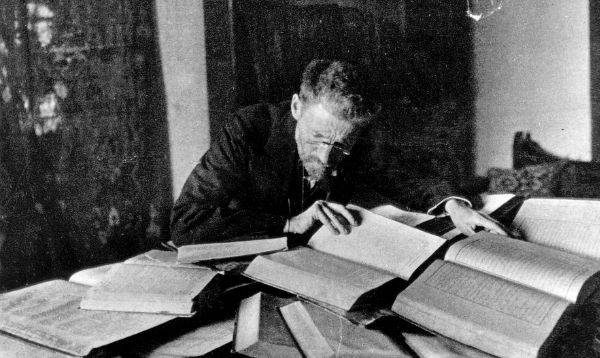What was the first language ever spoken?
In the beginning there was nothing. And God spoke into the void: Let there be light!
And there was light.
What language did God speak? What was the first language ever spoken?
In Jewish tradition, God's will is expressed through language. God spoke the entire Cosmos into existence.
The nothing that predated reality was surrounded by the Ein Sof (the infinite light). A single ray of light pierced the vacuum and the Hebrew letters and Hebrew language materialized into reality before anything else. And from this burst of Hebrew, all of creation followed. The entire Universe and all its rules and mechanics was described in Hebrew, the first language.
Hebrew was my first language too. The first language I could express myself in. It was the first language I could expose my own will onto the Cosmos.
My parents are immigrants from Israel. Although I was born in the United States, they desired a Hebrew speaking son. When I was young, they did not speak to me in English at all. It lead to a strange phenomena where I am largely (although not completely) illiterate in Hebrew. But I can understand it perfectly. I can understand ideas in English. But I have come to realize I only truly feel ideas when they are expressed to me in Hebrew.
Hebrew was preserved and cherished by the Jewish people for thousands of years. But it was rarely used. Hebrew was considered a holy tongue limited to religious study and prayer.
This changed with the Zionist movement. Eliezer Ben-Yehuda is the founding father of modern Hebrew. As a young boy in Jewish school he learned Hebrew. When he read about the Zionist movement he decided to drop everything and move to Jerusalem. But the Jewish people were largely a diaspora people and had many languages. Some spoke Arabic. Some spoke Yiddish. Some spoke English. Some spoke Ladino. And so on. What a mess!

Ben-Yehuda posited that if the Zionist project was to be successful there had to be one common language across all the Jewish people. Well there was one: Hebrew. So Eliezer set out to promote the language as a common everyday language. He met great resistance. Hebrew was considered a holy language too pure for use for trivial matters. Eventually he found supporters. This Hebrew movement lead by Ben-Yehuda began reestablishing Hebrew in the land of Israel.
Hebrew was so old that it was missing words for very common things - like ice cream. So Eliezer invented many new words, often borrowing from similar languages. He set the stage for modern Hebrew, the language spoken in Israel today. Modern Hebrew is largely a superset of ancient Hebrew. The modern dialect simplifies some vocabulary, which gives ancient Hebrew an almost Shakespeare-like feel to a modern speaker.
Hebrew went from a sacred but unspoken language to the language of a nation. This is the only time in all of human history where something like that happened.
One of the holy grails of artificial intelligence is to find a common way to express knowledge. A first language for all knowledge and all data. Can we create a sequence of numbers that if fed to an "image generation" model, it would output a picture of a cat? If that same sequence was fed to a "caption generation" model, could it describe a cat using natural language? If fed to a 3D model generator, could it create a 3D model of a cat? Other models would sing about cats, or write movie scripts about the cat, or explain its biology.
Can everything "cat" be expressed coherently in a single representation? This sequence of numbers has been called a thought vector. My first Ph.D. research direction involved new ways of creating these thought vectors. I built a platform called Binah to experiment with the idea. Ultimately though, I found it too challenging and switched my research topic. It's still obviously a huge interest of mine. I hypothesize a common "theory of knowledge" will be an important part of artificial general intelligence (AGI).
Finally, a philosophical point: if you can describe things perfectly in language, what is real? The language? Or the thing?